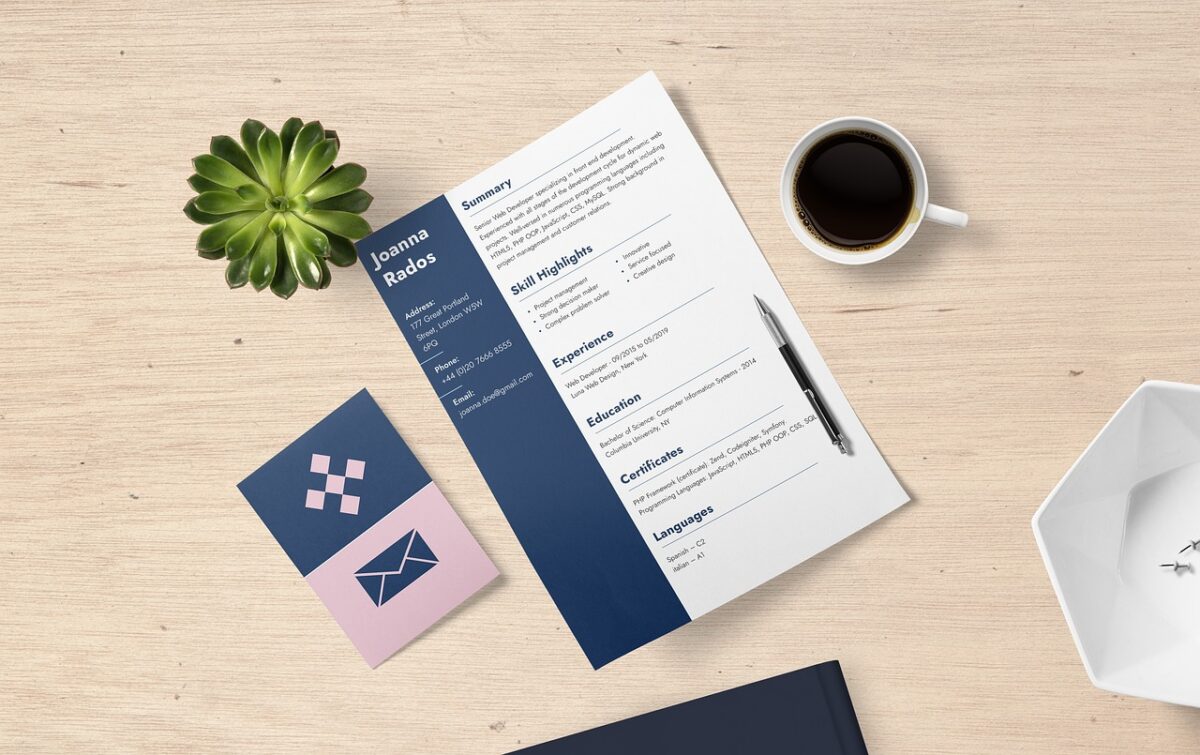What To Include In A Job Description

A job description is the foundation of How To Hire and Advertise A Job. A compelling job description will draw the attention of potential candidates and put the energy and momentum into the recruitment process, with the end goal of presenting a job offer to qualified candidates that align with your job profile. However, no matter how creative your penmanship, writing effective job descriptions starts with the basics and a little box-ticking. If you make an oversight and fail to include a critical element, your time and effort may be wasted. You may attract no job seekers at all, or almost as bad, attract applicants that are over or under-qualified.
So, what MUST you include in a job description?
The five things you must include in a job description so it can be used for job posting are:
- A job title
- A job summary
- Duties, tasks, and skills
- Pay and benefits
- Call to action
In this article, we look at how to overcome each job description writing challenge before exploring how to write a job description by business sector.
Quick Links:
- Job Title
- Job Summary
- Duties, Tasks And Skills
- Pay And Benefits
- Call To Action
- Legal Considerations In Recruitment Job Descriptions
- Diversity And Inclusion In Job Descriptions
- Role Progression And Career Pathways
- Company Culture And Work Environment
- Remote Work And Flexibility
- Feedback And Performance Evaluation Criteria
- Writing A Job Description By Business Sector
- Job Description FAQs
Highlights And Key Takeaways:
- The core elements of an effective job description include a job title and summary, responsibilities and duties, essential functions, physical demands, qualifications and skills, company overview, terms of employment, and a call to action.
Essential small business resource: View our library of 800+ job descriptions.
Job Title

Job titles can be straightforward or challenging to pick, depending on the scope of the role. To write a compelling job title, consider what is most specific to your open job. Job titles should precisely describe the role, and our experience is that job seekers click on the job titles that exactly match the title of the position they are seeking.
We recommend you avoid using internal terminology, which often creates a virtual barrier that pushes candidates away instead of drawing them in.
Job Summary

The job summary is the first opportunity for your business to say why you are unique. The uniqueness of your organisation should be engrained in its employer brand, company mission, company culture, and values. You will find the breadcrumbs of your company culture on your business’s website, usually on the ‘about us’ or ‘careers’ page.
Read What Should Be On A Company Careers Page.
An effective job summary should also lay out your expectations and the job’s location (city/remote/work from home). By describing the job responsibility, purpose, and goals, you give job seekers the chance to determine if their person specification aligns with your job profile.
Duties, Tasks, And Skills

Your job description should include a list of duties, tasks, and skills. The main duties and responsibilities take priority and define the must-do actions of the employee. Employers often judge the candidate’s performance on these during appraisals. Tasks are any other daily or regular activities employees undertake, usually required when tackling the job’s duties or to meet legal requirements and compliance.
Skills usually fall into two categories; soft skills and technical skills. Soft skills are personality traits that are beneficial in the work environment. For example, good communication or problem-solving. Technical (hard) skills are the necessary skills and knowledge potential candidates will need to fulfil the role. They are usually defined as required qualifications or experience required. For example, information technology proficiency, five years of experience in [profession], or a Bachelor’s degree in [subject]. The details of required certifications and accreditations also fall under the moniker of hard skills.
Presenting the duties, tasks, and skills in your job description will help job seekers determine if they fit into the qualified candidates’ bracket, reducing the time employers will need to invest in candidate screening. So should you include work ethics in a job description? Find out by reading our latest blog – Should you Include Work Ethic In A Job Description?
Pay And Benefits

Salary and benefits are a vital component of your Employee Value Proposition. Employers aiming to hire the best candidates should not overlook pay and benefits in their job description and job posting. Our recruiting data and experience highlight two valuable facts: Hiring success increases if you state a salary or pay band, and three-quarters of recruiting businesses fail to recognise and include the job’s salary. To stand out from other employers, tackle pay in your job posting, not your job interview.
If you are already at the interview stage of the hiring process, visit our interviews hub for free valuable resources.
A business hiring talent tends to be more forthcoming with benefits. While no candidate will turn their nose to a company pension or health plan, employee expectations have recently changed and evolved. A healthy work-life balance is a top-ranking factor when candidates consider your position. Therefore, it will help to create a job description that sets out your working conditions, including your flexible working policy (remote/hybrid/work from home/when work hours can be completed). For further advice on working hours, read our article UK Employment Hours: A Comprehensive Guide To Work Hours.
Highlighting career development, training, and opportunities to earn further qualifications remain an effective way to attract the right candidate.
Call To Action

Your call to action should contain key information on how candidates should apply for your position. Your options include directing talent to an online job application form or requesting CVs be sent to the recruiter’s email. At this point in the hiring process, it is an excellent idea to decide if you will conduct phone screening and video or in-person interviews. A medium-sized or small business may find it advantageous to investigate a flat fee recruitment solution that rolls up job advertising, CV filtering, candidate screening, and interview scheduling.
Legal Considerations In Recruitment Job Descriptions
Crafting a job description goes beyond outlining responsibilities and expectations; it also necessitates a keen awareness of legal frameworks. Employers must ensure that their recruitment job descriptions comply with employment laws, uphold discrimination policies, and respect privacy concerns. This diligence is crucial in creating not only effective job descriptions but also legally sound ones that foster a fair and inclusive workplace.
- Compliance with Employment Laws: It is imperative that job descriptions accurately reflect the operations performed in the role. This includes a clear depiction of essential physical requirements and working conditions, ensuring candidates have sufficient comprehension of what the job entails. For instance, if the role involves exposure to hazardous materials or loud noise, this should be transparently stated.
- Adherence to the Disabilities Act: Inclusivity is a cornerstone of contemporary recruitment practices. Job descriptions must align with the Disabilities Act, offering reasonable accommodations for candidates with disabilities. This commitment to inclusivity should be evident in the way physical demands and working conditions are described, ensuring they are not discriminatory but instead provide a truthful representation of the role.
- Salary Information and Benefits Packages: Transparency regarding salary information is not only a best practice but also aids in establishing trust with potential candidates. Including salary ranges helps in attracting applicants who are content with the offered remuneration, thereby aligning expectations from the outset.
- Required Level of Expertise and Experience: Clearly specifying the required level of expertise and experience is critical. This helps in attracting prospective candidates and also serves as a legal safeguard, ensuring that the selection process is based on merit, required education, and preferred qualifications.
In summary, when crafting recruitment job descriptions, it is essential to provide a comprehensive and accurate portrayal of the role while ensuring adherence to legal standards. By doing so, employers can avoid legal pitfalls and foster an equitable recruitment process.
Diversity And Inclusion In Job Descriptions
A well-written job description is a foundational element in the recruitment process, setting the tone for an organisation’s commitment to diversity and inclusion. Such a section in a job description not only reflects a company’s ethos but also actively contributes to widening the applicant pool by appealing to a diverse range of candidates.
- Incorporating Basic Principles of Inclusivity: At the heart of diversity and inclusion is the use of language that resonates with a broad spectrum of individuals. It is crucial to apply basic principles of inclusive communication. This means avoiding jargon, gender-specific terms, or culturally biased phrases that might unconsciously deter certain groups from applying. The language should be welcoming, universally relatable, and indicative of an environment where varied perspectives are valued.
- Highlighting the Company’s Commitment: A job description presents an opportune platform to showcase a company’s dedication to building a diverse workforce. This can be achieved by explicitly stating the company’s diversity policies and initiatives. It is important to articulate how the organisation embraces different backgrounds, experiences, and ideas, thereby setting expectations for an inclusive culture.
- Broadening the Applicant Pool: By incorporating diversity and inclusion into job descriptions, companies can attract a more varied applicant pool. This not only enriches the talent within the organisation but also contributes to a more creative, innovative, and productive workforce.
In conclusion, integrating diversity and inclusion into job descriptions is not merely a good practice; it is a strategic approach to nurturing a dynamic and diverse workplace. This starts with setting clear expectations through well-written job descriptions that welcome and encourage applicants from all walks of life.
Role Progression And Career Pathways
In a good job description, it is beneficial to not only delineate job duties and essential activities but also to articulate potential career progression and development opportunities associated with the role. This can be a key differentiator in job postings, appealing to candidates who are seeking long-term growth and advancement.
- Highlighting Job Requirements and Skills: A comprehensive job description should clearly outline both the ‘must have skills’ and ‘nice to have skills’. This includes a thorough knowledge of what the job entails, as well as a general knowledge that may be beneficial. For instance, while a role might require complete mastery of specific technical skills, it may also benefit from someone with a working knowledge of broader industry trends.
- Detailing Career Progression Opportunities: By explicitly stating the potential for career advancement within the role, employers can attract ambitious candidates. This could involve outlining paths for gaining new skills, earning supervisory responsibilities, or achieving comprehensive knowledge in certain areas. Demonstrating that there is room for growth and the acquisition of a more diverse skill set can be a significant draw.
- Promoting Development of New Skills: A job description should communicate how the role allows for the development of new skills. Whether through on-the-job training, formal education, or mentorship programs, showing how a role supports continuous learning and skill development can be highly attractive to prospective employees.
- Articulating the Full Scope of the Role: It’s essential that the job description accurately reflects the full scope of the role. This includes not just the immediate job requirements but also potential future responsibilities and opportunities. Such clarity helps candidates to envision a future within the company, thereby fostering a sense of investment and long-term commitment.
In summary, incorporating information about role progression and career pathways in job postings can significantly enhance their appeal. By providing a clear vision of how a role can evolve over time, and detailing how employees can grow their skills and responsibilities, employers can attract candidates who are not just looking for a job, but a career path and a place to thrive.
Company Culture And Work Environment
An effective job description does more than list responsibilities and qualifications; it serves as a critical component in the recruiting process by offering a clear idea of the company’s culture, values, and work environment. A dedicated section on these aspects can greatly enhance a candidate’s understanding of the job purpose and what it’s like to work for the company.
- Conveying Company Culture: This section should articulate the core values and ethos of the organisation, providing a reference point for candidates to assess their alignment with the company’s principles. Whether it’s a commitment to innovation, a focus on sustainability, or a dedication to employee wellbeing, conveying these values gives candidates insight into what drives the company.
- Describing the Work Environment: A vivid description of the work environment helps candidates visualise their daily life within the company. This could include details about the physical workspace, team dynamics, leadership style, and even company-wide events or traditions. Giving a clear idea of the work environment can significantly impact a candidate’s decision to apply.
- Highlighting Unique Aspects: Every company has unique aspects that set it apart. This section is an opportunity to showcase what makes the company different, whether it’s unique work-life balance initiatives, community involvement, or innovative approaches to collaboration and creativity.
- Reinforcing the Job Purpose: By linking the company culture and work environment to the job purpose, candidates can better understand how their role fits within the broader context of the company. This not only helps in attracting candidates who are a good cultural fit but also aids in setting clear expectations for their potential role within the organisation.
In summary, by incorporating a dedicated section on company culture and work environment in the job description, employers can provide a more complete and engaging picture of what it means to be part of their team. This approach not only enriches the recruiting process but also helps in attracting candidates who resonate with the company’s values and vision.
Remote Work And Flexibility
In today’s evolving work landscape, a section on remote work opportunities and flexibility in a job description provides a high-level overview of the company’s approach to modern working arrangements. This can significantly influence the application process, as candidates increasingly seek roles that offer flexibility.
- Detailing Remote Work Opportunities: Clearly state the nature of remote work opportunities within the role. This should include whether the position is fully remote, hybrid, or offers the flexibility to work remotely on occasion. Providing this information upfront sets clear expectations and helps candidates understand how remote work is integrated into the company’s operations.
- Setting Clear Expectations for Flexibility: Alongside detailing remote work options, it’s important to outline the expectations associated with them. This may include availability during certain hours, communication protocols, and any necessary equipment or technology requirements. Clear guidelines help candidates gauge how remote work fits within the broader context of the role.
- Incorporating Flexibility into the Application Process: Reflecting the flexibility offered in the role within the application process itself can be a compelling draw for candidates. This could include mentioning the possibility of remote interviews or the use of digital tools and platforms for the recruitment process. By mirroring the flexibility of the role in the application process, candidates get a practical understanding of the company’s commitment to adaptable working conditions.
In summary, incorporating a comprehensive section on remote work and flexibility in job descriptions is not only reflective of current workplace trends but also essential in attracting a wider pool of candidates. By providing a high-level overview of remote work options and setting clear expectations, employers can better align with the needs and preferences of today’s workforce.
Feedback And Performance Evaluation Criteria
Incorporating information about performance evaluation and feedback mechanisms in a job description is essential for setting clear expectations with candidates, particularly those considered top talent who are often keenly interested in how their performance will be assessed and developed.
- Highlighting Performance Reviews: Clearly outline how and when performance reviews will be conducted. This may include the frequency of reviews, the criteria used for evaluation, and the process for setting and reviewing performance goals. Providing this information helps candidates understand the commitment to ongoing development and the standards they will be expected to meet.
- Technical Matters and Performance: If the role involves technical matters, specify how technical competencies will be evaluated. This could be through regular assessments, project-based reviews, or continuous monitoring of certain metrics. Clarifying how technical skills and knowledge are appraised ensures candidates are aware of the technical standards they will be required to uphold.
- Feedback Mechanisms: Detail the mechanisms in place for providing regular feedback. This might include one-to-one meetings, team reviews, or real-time feedback channels. A clear description of how feedback is delivered and how employees can use it for their professional development is crucial in attracting candidates who are focused on growth and improvement.
- Incorporating Other Duties: If the role involves other duties beyond the primary responsibilities, explain how these will be factored into performance evaluations. This helps candidates understand the full scope of the role and how various aspects of their work will contribute to their overall performance assessment.
In summary, by including detailed information about feedback and performance evaluation criteria in job descriptions, employers can set clear expectations regarding performance standards. This not only helps in attracting candidates who are committed to excellence but also fosters a culture of continuous improvement and transparency.
Writing A Job Description By Business Sector
Find what to include in a job description for your business sector below and follow the links for an example job description.
ACCOUNTING JOB DESCRIPTIONS
Accounting duties include filing tax returns, preparing financial statements, conducting financial analysis, and maintaining financial records. Accounting tasks might include resolving discrepancies, calculating taxes, financial forecasting, and auditing paperwork for legal compliance.
Examples of accounting soft skills include numeracy, detail orientated, and problem-solving. Accounting hard skills include Chartered Institute Accreditation, a CPA exam pass, and a Bachelor’s degree in Accounting.
Resources to help you write an Accounting job description:
- Duties, Tasks, And Skills For Accounting Job Descriptions
- How To Hire Accounting Staff
- Key Roles And Responsibilities In Accounting
- Accounting Job Descriptions
ADMINISTRATION JOB DESCRIPTIONS
Administration duties include word processing, data entry, answering calls, and providing clerical support to the management team. Tasks include general bookkeeping, delivering mail, ordering office supplies, and recording expenses.
Administration soft skills include good typing skills, attention to detail, organisation, and multitasking. Examples of administration hard skills include a Level 2 or 3 Business Administration Diploma and Microsoft Office proficiency.
Resources to create your job listing:
- Duties, Tasks, And Skills For Administration Job Descriptions
- How To Hire Administration Staff
- Key Roles And Responsibilities In Administration
- Administration Job Descriptions
BAR AND RESTAURANT JOB DESCRIPTIONS
Bar and restaurant duties might consist of taking orders, serving food, and clearing tables. Examples of the bar and restaurant tasks include taking payments from customers, balancing the till, and handling customer complaints.
Valuable bar and restaurant soft skills include a good memory, excellent communication, and numeracy. Hard bar and restaurant skills include POS system proficiency and a Diploma in Advanced Professional Cookery or Professional Culinary Arts.
Further reading to aid your candidate search:
- Duties, Tasks, And Skills For Bar And Restaurant Job Descriptions
- How To Hire Bar And Restaurant Staff
- Key Roles And Responsibilities In Bar And Restaurant
- Bar And Restaurant Job Descriptions
CIVIL SERVICE JOB DESCRIPTIONS
The duties of a civil service position include conducting research, guiding people’s training, investigating crime, and overseeing policy development. Civil service tasks might include office administration, answering the public’s questions, collecting rent, and taking legal action.
Soft civil service skills include integrity, objectivity, and impartiality. Technical skills include specialist knowledge of career paths, engineering, law, environment, or security, often qualified through a relevant degree.
These articles will help your company explore the various jobs and their responsibilities further:
- Duties, Tasks, And Skills For Civil Service Job Descriptions
- How To Hire Civil Service Staff
- Key Roles And Responsibilities Of Civil Service Professionals
- Civil Service Job Descriptions
CONSTRUCTION JOB DESCRIPTIONS
Construction duties might entail project management, using machinery, unloading building materials, and negotiating contracts. Everyday tasks include preparing the construction site for the following building phase, attending team meetings, and erecting traffic signals.
Construction soft skills include physical fitness, time management, and health and safety know-how for a work environment that has potential dangers. Hard skills include a heavy equipment driving licence and a project management or construction degree.
Explore the details of each position further:
- Duties, Tasks, And Skills For Construction Job Descriptions
- How To Hire Construction Staff
- Key Roles And Responsibilities In Construction
- Construction Job Descriptions
CUSTOMER SERVICES JOB DESCRIPTIONS
Customer services responsibilities include answering incoming calls, updating customer records, and promoting company products and services. The tasks of customer services consist of responding to emails, adding or removing subscription features, and selling company products.
Soft skills include active listening, verbal communication, and empathy. Technical customer services skills include a Certificate in Customer Service or Contact Centre Operations and proficiency with CRM systems.
Discover further details of customer services roles below:
- Duties, Tasks, And Skills For Customer Services Job Descriptions
- How To Hire Customer Services Staff
- Key Roles And Responsibilities In Customer Services
- Customer Services Job Descriptions
EDUCATION JOB DESCRIPTIONS
Educations jobs entail many duties such as creating and delivering lesson plans, grading students, and maintaining a safe learning environment. Education tasks include attending faculty meetings, guiding children’s behaviour, and preventing bullying.
Soft skills in education consist of interpersonal abilities and presentation skills. Technical education skills include a relevant degree accompanied by Qualified Teacher Status.
Recruiting resources for small and medium-sized businesses:
- Duties, Tasks, And Skills For Education Job Descriptions
- How To Hire Education Staff
- Key Roles And Responsibilities In Education
- Education Job Descriptions
FINANCE JOB DESCRIPTIONS
Finance job responsibilities consist of processing financial transactions, financial planning, and risk management. Finance tasks include data entry, maintaining balance sheets, and researching economic conditions.
Soft skills for finance include numeracy, attention to detail, and strategic thinking. Hard skills for employees are a Bachelor’s degree in Finance or qualifications such as the CFA, CAIA, CFP, or ACA.
Aid your search for finance employees with these resources:
- Duties, Tasks, And Skills For Finance Job Descriptions
- How To Hire Finance Staff
- Key Roles And Responsibilities In Finance
- Finance Job Descriptions
HEALTHCARE JOB DESCRIPTIONS
Healthcare jobs involve performing medical tests, diagnosing conditions, and conducting operations. Employees will schedule appointments, liaise with laboratories, and collaborate with other medical professionals.
Beneficial personality traits for employees include compassion, empathy, positivity, and receptiveness. Qualified candidates might be Health and Care Professions Council or Nursing and Midwifery Council registered.
You can determine your job profile using these resources:
- Duties, Tasks, And Skills For Healthcare Job Descriptions
- How To Hire Healthcare Staff
- Key Roles And Responsibilities In Healthcare
- Healthcare Job Descriptions
HOSPITALITY JOB DESCRIPTIONS
Hospitality duties may focus on event planning, ensuring guests’ safety, and handling complaints. Daily tasks involve greeting guests, restocking supplies, and responding to customer requests.
Practical soft skills are multitasking, communication, and decision-making. The best candidates may have a Bachelor’s degree in Hospitality Management or Hotel Management or a Certificate in Cleaning Principles.
Explore the details of a hospitality job description further by reading:
- Duties, Tasks, And Skills For Hospitality Job Descriptions
- How To Hire Hospitality Staff
- Key Roles And Responsibilities In Hospitality
- Hospitality Job Descriptions
HR JOB DESCRIPTIONS
HR candidates will manage employee relations, maintain employee records, and conduct a candidate search. Tasks include recording work hours and absences, onboarding new hires, and resolving inter-employee conflicts.
HR skills consist of good communication, business acumen, and objectivity. Technical proficiencies include MS Office, UK employment law, and a degree in Human Resource Management.
Further articles on writing HR job specifications:
- Duties, Tasks, And Skills For HR Job Descriptions
- How To Hire HR Staff
- Key Roles And Responsibilities In HR
- HR Job Descriptions
IT JOB DESCRIPTIONS
IT responsibilities include providing technical support, overseeing software development, and maintaining systems, networks and other infrastructure. IT employees may also update hardware and software, train new employees, and manage security threats.
Interpersonal skills and an aptitude for solving technical problems complement technical qualifications such as a Bachelor’s degree in Computer Science or Website Development.
You can discover more about what to include in an IT job profile below:
- Duties, Tasks, And Skills For IT Job Descriptions
- How To Hire IT Staff
- Key Roles And Responsibilities In IT
- IT Job Descriptions
MANAGEMENT JOB DESCRIPTIONS
The responsibilities of management include training and motivating their team, managing day-to-day operations, planning budgets, and setting quality and sales goals. Regular tasks cover running meetings, creating staff schedules, and allocating department resources.
Leadership skills and business acumen may be demonstrated through experience or a Master’s degree in Business Administration or Operations Management.
Your company can learn more by reading the following articles:
- Duties, Tasks, And Skills For Management Job Descriptions
- How To Hire Management Staff
- Key Roles And Responsibilities In Management
- Management Job Descriptions
MARKETING JOB DESCRIPTIONS
Marketing roles involve creating and implementing marketing strategies and plans. Duties and tasks include ensuring campaigns run within budget, raising brand awareness, and managing paid advertising.
Soft marketing skills include writing, public speaking, and intuition. Hard marketing skills include proficiency in using Adobe Creative Suite and a Bachelor’s degree in Marketing or Public Relations.
The following resources will help you write your description:
- Duties, Tasks, And Skills For Marketing Job Description
- How To Hire Marketing Staff
- Key Roles And Responsibilities In Marketing
- Marketing Job Descriptions
PROFESSIONAL SERVICES JOB DESCRIPTIONS
The duties of professional services vary and might include providing legal advice, conducting research, project management, and consultation. Job tasks consist of writing procedures, policies, and contracts, training staff, and troubleshooting problems.
Skills for professional services include leadership, research, and communication. Technical proficiency is usually quantified by a relevant degree.
Further hiring resources:
- Duties, Tasks, And Skills For Professional Services Job Descriptions
- How To Hire Professional Services Staff
- Key Roles And Responsibilities In Professional Services
- Professional Services Job Descriptions
RETAIL JOB DESCRIPTIONS
The responsibilities of retail staff include hitting sales and customer service goals. Retail tasks include processing transactions, balancing the cash till, receiving stock.
Soft retail skills comprise of good time management, communication, numeracy, and sales. Hard skills may be evidenced through work experience or a relevant degree.
Discover the elements of a retail job description by reading:
- Duties, Tasks, And Skills For Retail Job Descriptions
- How To Hire Retail Staff
- Key Roles And Responsibilities In Retail
- Retail Job Descriptions
SALES JOB DESCRIPTIONS
Sales duties will include hitting sales targets, finding new business prospects, and building relationships with customers. Typical tasks are answering or making sales calls, processing sales transactions, and collaborating with the marketing department.
Persuasiveness, drive, and an ability to communicate with clients are excellent soft skills for sales. Hard sales skills include a proven track record or a Bachelor’s degree in sales or marketing.
Fill out your job profile by investigating the following articles:
- Duties, Tasks, And Skills For Sales Job Descriptions
- How To Hire Sales Staff
- Key Roles And Responsibilities In Sales
- Sales Job Descriptions
TRANSPORTATION JOB DESCRIPTIONS
Transportation duties comprise scheduling services, supply chain management, and logistics compliance. Tasks include planning routes, monitoring stock, delivering goods, and monitoring safety.
Interpersonal, time management, and geographical awareness are desirable soft skills. Hard skills include an HGV or forklift licence or an Associate’s degree in Logistics or Transportation.
Explore transportation job posting further:
- Duties, Tasks, And Skills For Transportation Job Descriptions
- How To Hire Transportation Staff
- Key Roles And Responsibilities In Transportation
- Transportation Job Descriptions
Job Description FAQs
Next, we answer your questions on what to include in a job description.
A job description is a profile of the role comprising the job’s title, responsibilities, skills, pay, and benefits.
Your company should choose a title that precisely describes the role and might be used by candidates making a job search.
Writing a good job description requires a clear and concise approach, ensuring that it accurately reflects the nature of the job and the qualifications required. Firstly, consider what should be in a job description: it should start with a brief overview of the role, followed by a detailed list of responsibilities and essential functions. It’s important to clearly define the scope of the role, including any physical demands and the skills required to solve unusual or complex problems. Use bullet points to make the description easy to read and ensure that all key information is easily accessible. Additionally, outline any qualifications, experience, and personal attributes that are necessary for the role. Lastly, include details about the company culture and any unique benefits or opportunities the role offers.
1. Job Title and Summary: This should provide a high-level overview of the role, including its main purpose and where it fits within the organisation. 2. Responsibilities and Duties: List the primary tasks and duties of the role, using bullet points for clarity. This section should detail what should be included in a job description in terms of day-to-day activities. 3. Essential Functions: Clearly outline the core functions of the role that are critical to fulfilling job responsibilities. 4. Physical Demands: If applicable, describe the physical demands of the job, such as lifting weights, standing for long periods, or other physical tasks. 5. Qualifications and Skills: Specify the education, experience, skills, and other qualifications required for the role. This could include specific technical skills or the ability to solve unusual challenges. 6. Company Overview: Provide information about the company, including its values, culture, and any unique aspects that might be appealing to potential candidates. 7. Terms of Employment: Detail the employment type (full-time, part-time, contract), expected working hours, salary range, and any benefits associated with the role. – Incorporating these seven contents will ensure that the job description is comprehensive, clear, and effectively communicates the expectations and requirements of the role.



